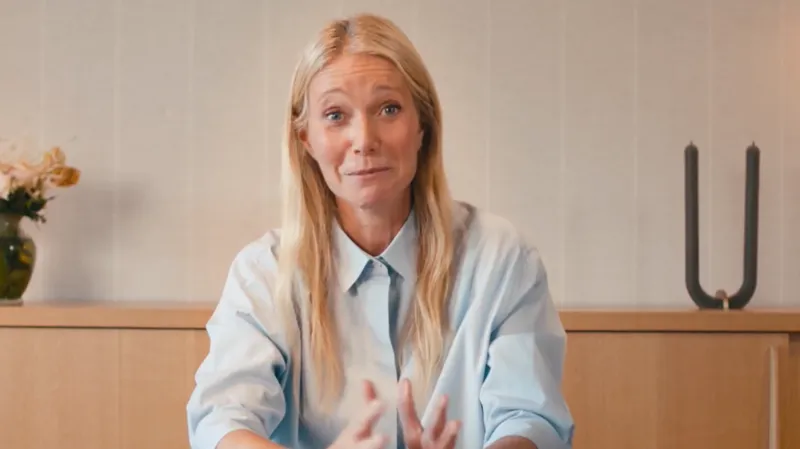Britain must be 'battle-ready' - and 'every citizen has a role to play', says PM
Sir Keir Starmer has launched the Strategic Defence Review, spelling out the importance of rebuilding national defence and resilience. But there are already questions about if the Treasury will provide the funding needed.

Farage could humiliate Starmer this week - but real power in Scotland a long way off
Nigel Farage has a track record of noisy, messy campaign visits to Scotland.
Famously hounded out of an Edinburgh pub in 2013, today came an Aberdeen media conference at a fish restaurant to the soundtrack of "Farage is a racist" chants outside from the small, but vocal crowd.
Farage came to northeast Scotland with a spring in his step as Reform surges in the Scottish polls. One even suggests his party could become the official opposition to the SNP at Holyrood in 2026.
A humiliating prospect for Labour and the Conservatives.
Farage has pivoted his attacks on the "Scottish establishment" in recent weeks as a by-election looms in Hamilton, Larkhall and Stonehouse.
SNP chief John Swinney is churning out almost daily press releases about Farage, claiming he "doesn't care about Scotland", while Scottish Labour's Anas Sarwar branded the Reform boss a "pathetic little man".
This week's by-election will be a barometer of where Reform support potentially sits more nationally.
The SNP and Labour are privately nervous. But Scotland, it seems, is not riding the same "Farage tsunami" as England.
He alleges he is capitalising on the disenfranchisement in Scottish politics, yet the polls propose the SNP could still storm to power again next year and enter their third decade in power.
Keir Starmer would be humiliated by Reform finishing above Labour in this by-election, though. It would have been inconceivable Farage would have been taking up so much political bandwidth here even a year ago, given Scotland rejected the politics of Farage for more than a decade.
It is a remarkable charge in narrative, but Reform is yet to win any major seat north of the border.
The full list of candidates:
- Collette Bradley, Scottish Socialist Party
- Andy Brady, Scottish Family Party
- Ross Lambie, Reform UK
- Katy Loudon, SNP
- Janice MacKay, UKIP
- Ann McGuinness, Scottish Greens
- Aisha Mir, Scottish Lib Dems
- Richard Nelson, Scottish Conservatives
- Davy Russell, Scottish Labour
- Marc Wilkinson, independent
- The by-election takes place on 5 June.
Your country needs you!
He didn't quite use those words, but the prime minister has somewhat echoed that famous First World War recruitment poster in launching the government's strategic defence review this morning.
Here are the main things you need to know:
- Keir Starmer has said the UK's armed forces must move to "war-fighting readiness" over the next few years;
- The prime minister wants the military to "innovate" at "wartime pace", with billions being invested in AI and cybersecurity;
- He's also announced six new munitions factories, 12 new nuclear attack submarines, investment in air and missile defence systems, and more;
- "Every citizen has a role to play," the PM added, saying the UK faces a "more serious, more immediate" threat than at any time since the Cold War;
- Our military analyst Professor Michael Clarke said he's never known a defence review as "radical" as this, as Britain looks to counter Russia.
The key question, though is funding - with the PM refusing to set a timeline for hitting the target of spending 3% of GDP on defence;
Our political editor Beth Rigby challenged the PM on funding during his news conference in Glasgow, as the government looks to balance defence needs with domestic priorities.
Defence Secretary John Healey will unveil more details about the government's plans in the Commons from around 3.30pm.
That's around the time we also expect to get our hands on the strategic defence document review itself, which our security and defence editor Deborah Haynes will comb through for us.
Stay with us for more updates and analysis through the afternoon.
'This is a welcome day for UK defence,' says armed forces chief
After the prime minister's speech, the head of the British armed forces, Admiral Sir Tony Radakin, spoke to broadcasters.
He said there will be an increase in defence spending, reaching 3% of GDP in the 2030s, and welcomed the government's announcements so far.
"It's a brand-new defence review. It affirms the importance of nuclear. It affirms the importance of NATO and our role in NATO, and it also reflects that the threats that we face mean that we have to modernise and innovate at the same time," he said.
"So this is a welcome day for defence, and our job now is to get on with delivering."
Radakin was asked about the recruitment and retention crisis in the armed forces, and how that will affect the UK's readiness, to which he replied: "We are turning that crisis, as you say, around."
The navy and air force are seeing "net positive" recruitment, but the army is losing around 200 people a month, which they are trying to turn around.
"We're doing much better than we were 12 months ago, and days like today are really important," he said.
"They reflect the importance of defence for the whole nation. They reflect the ambition that is there in defence, and they reflect the certainty about good jobs in the future and a British defence that is getting stronger.
"And all of that helps so that people know they can join their armed forces, they can serve their country, and they can have the assuredness of the great careers that we offer."
'We are safe today'
Asked finally if the UK could defeat Russia in a war today, he pointed out we are a nuclear power, a member of NATO, and have the US - the "most powerful nation on the planet" - as a key ally.
"So we are safe today, and we need to recognise the threats that we face and be even stronger in the future."
I've worked on strategic defence reviews before - I've never known one this radical
Our military analyst Professor Michael Clarke has been involved in previous strategic defence reviews going back to 1998.
Intended as a sort of sit rep on Britain's armed forces and what its priorities should be in the coming years, Michael says he has "never known one as radical" as the one outlined by Keir Starmer today.
It's intended as a "culture change", he says - not just within government but across the wider public.
'Transformational'
While the Russian threat has put more momentum behind what's in this review, the changes it talks about would have been needed anyway.
It's all about the shifting nature of warfare, and the different ways in which our forces will be challenged in the 2030s.
"This transformational job relies much more on AI, satellites, and computing power," says Michael, and in some cases about who can "disable the opponent before a shot is fired".
There's over a billion pounds going into AI and a lot of cash into cybersecurity - so much so that Britain is putting more money into these "transformational forces" than any of its European allies, and quicker.
Michael adds: "A lot of our allies in Europe are taking a lot of interest in this because Britain is taking a pun.
"If we get it right, they'll all follow suit."
Where all the money's going to come from, though, remains to be seen.
The key question is if Starmer is prepared to put his money where his mouth is
We've just been hearing from our political editor Beth Rigby, who is in Scotland with the prime minister.
She described today as "a big moment for the government" as it unveils its decade-long plan for the UK's defence.
And the election of Donald Trump last November has created a new sense of urgency because the US president has told allies that they must step up and fund more of their own defence.
"So what's happening here is the prime minister and other members of the NATO alliance are being really pressed to increase defence spending," she explained.
"But the big question here is if Sir Keir Starmer - who is positioning himself as a wartime prime minister almost - will really put his money where his mouth is.
"Because there is general consensus amongst defence experts, and within defence forces, that the UK needs to really step up funding."
Beth noted that the government has already slashed overseas aid to pay for the commitment to reach spending of 2.5% of GDP on defence.
"But the big question is here, how do you deliver the Strategic Defence Review that you are talking about if you do not lift defence spending to at least 3% of GDP in the next parliament?"
Asked about that repeatedly, Starmer refused to set a date for reaching that level.
The key question, Beth explained, is that if the economy does not grow in the way that he hopes, thereby increasing tax receipts for government spending, then will he still increase spending to 3% of GDP?
"It might be that he is gearing up to make that commitment, and he's just not ready to do it yet."
-SKY NEWS







